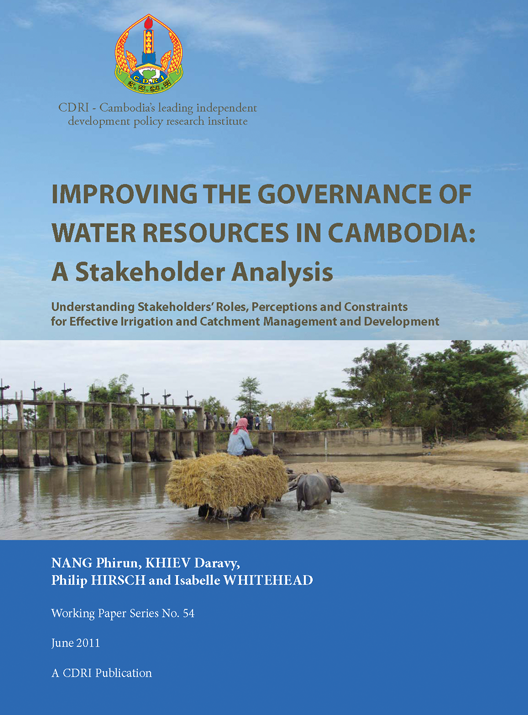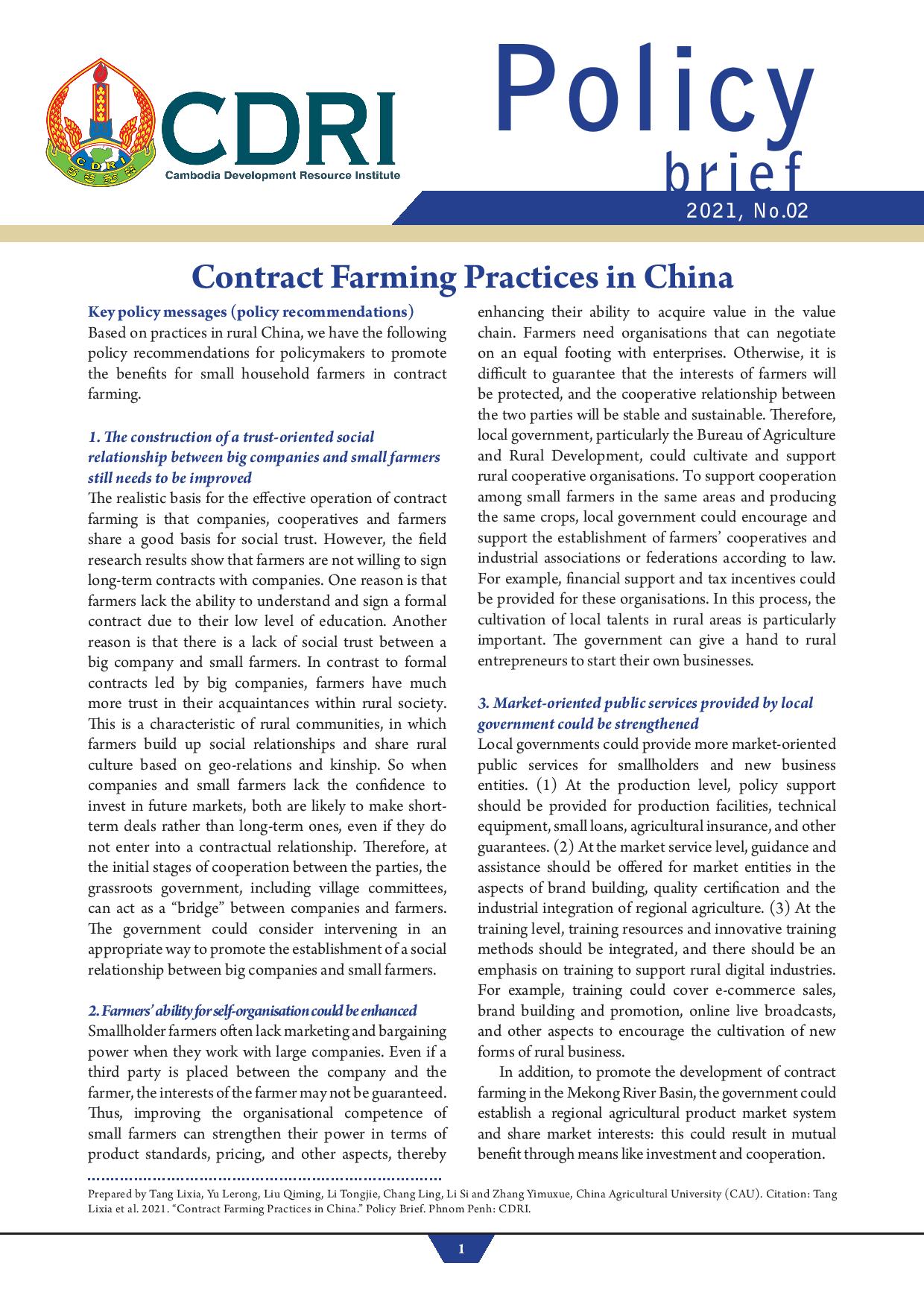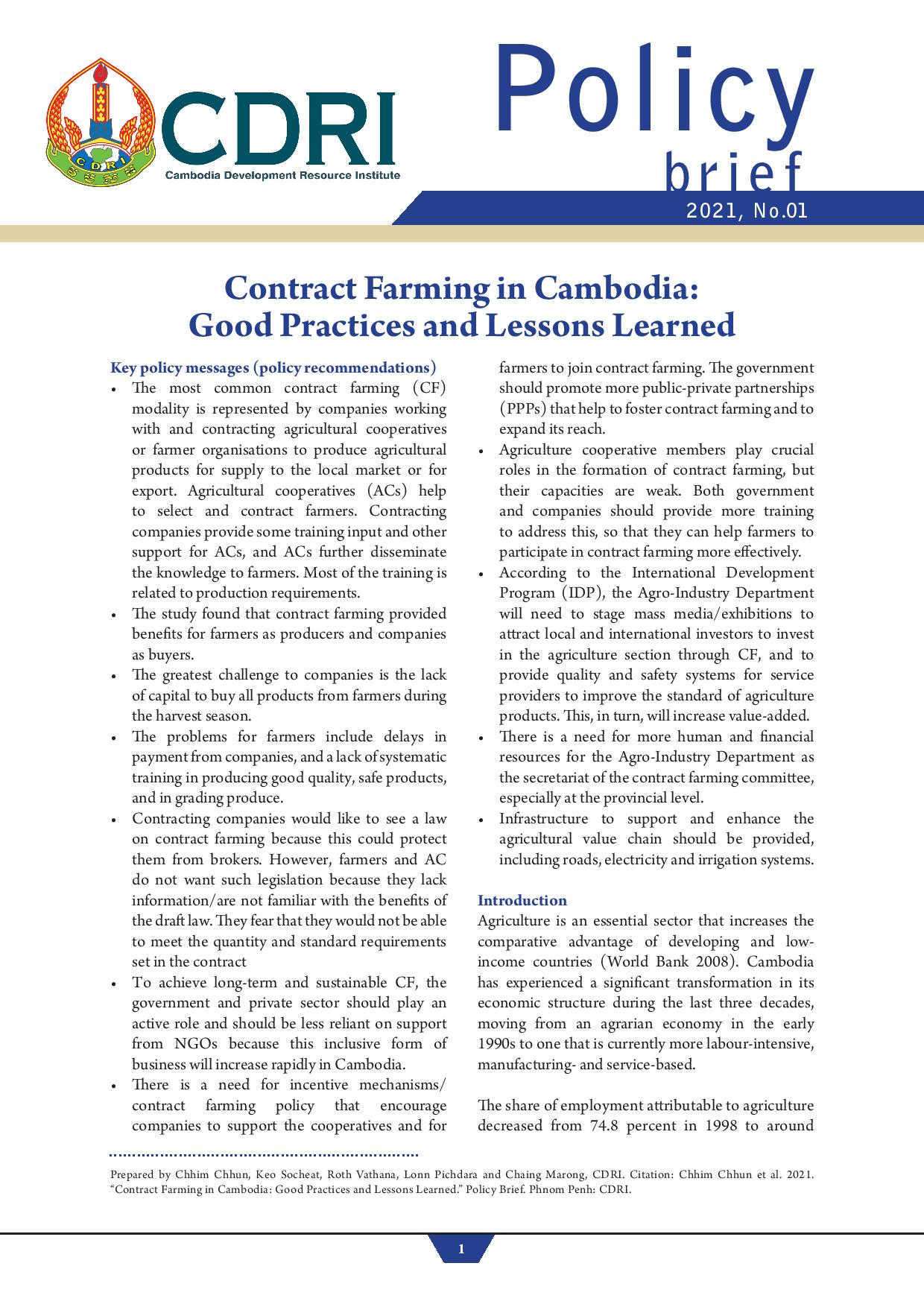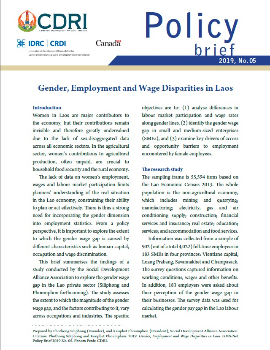
Improving the Governance of Water Resources in Cambodia: A Stakeholder Analysis
Keyword: Water governance, stakeholder analysis, irrigation management, integrated water resources management, Cambodia
Abstract/Summary
Irrigation
development and management of water resources present serious governance
challenges for many stakeholders in Cambodia. Farmers, government agencies,
development organisations and the private sector all have a role to play, yet
their roles and responsibilities are not always well defined. Contemporary
ideas on water governance indicate a greater need for participation and
ownership of local resources by the communities that use those resources. As
such, there is a need to refine and rethink the way in which key stakeholders
relate to each other and make decisions on the use of water for irrigation.
This paper analyses
stakeholder roles, relationships and perspectives with respect to Cambodia’s
water resources management, with a specific focus on irrigation and catchment
management. It also examines the degree of consistency or disparity between different
stakeholders, and between formal stakeholder roles and actual practices. Data
from key informant interviews, field observations, focus group discussions
(FGDs) and dissemination workshops have been analysed to draw out the main
issues relating to water governance stakeholders and to resolve knowledge gaps.
It examines water-related institutions and stakeholder agencies in depth to
gain an understanding of their current capacity and potential. The research
findings are presented in a way that will assist public policy decision-makers
to compare and evaluate policy alternatives.
Several theoretical
approaches guided this study, one of which is the stakeholder typology.
Developed as part of the analysis, this perspective has enabled a broad
definition of stakeholders in terms of their relative power (influence),
legitimacy (interest) and urgency. The analysis is also broadly informed by
existing literature on stakeholder relationships and governance mechanisms,
especially as they relate to water governance. This includes Integrated Water
Resources Management (IWRM), which advocates for the proper coordination and
active participation of stakeholders from all relevant sectors. Its underlying
assumption is to consider the social, cultural, political, economic and
ecological aspects of water as being interrelated and equally valuable.



